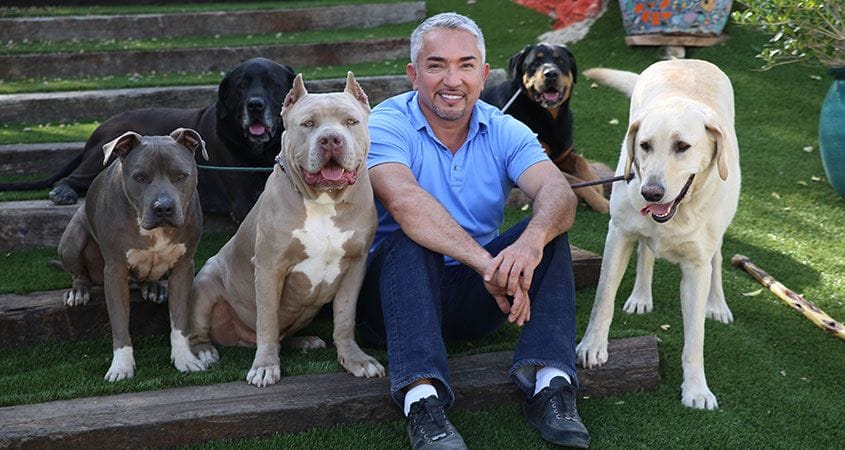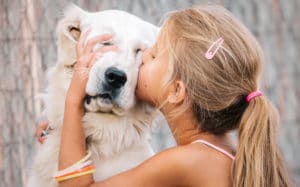You might be wondering why dog socialization is so important — I have an entire DVD in my “Essentials of Dog Behavior” series dedicated to socialization in different situations, like at home, on the walk, and in the dog park. So, again, why is socializing your dog so important? Here’s why.
The Problem with Humanizing Dogs
The biggest reason that people have trouble with their dogs is that they have forgotten how to let them be dogs. The more we humanize our dogs, the more confused or neurotic we make them. A dog doesn’t know how to be a human any more than a human knows how to be a fish.
Letting a dog learn how to be a dog, just like letting a person learn how to be a person, is called socialization. For a human, being socialized means knowing the rules of how to behave in various situations — like it’s bad to get drunk and tell dirty jokes at a funeral, or to ask the bride out at her own wedding. Socialization teaches us to be polite, to not solve problems with violence, and how to interact with and respect the boundaries of others.
What Socialization Means to Dogs
For dogs, socialization means understanding their place in the pack, and following the rules set by the Pack Leaders. They begin learning the rules as puppies, with their mothers correcting them when they break them. Later, other dogs join in the reinforcement process — one dog breaks a rule, another dog corrects it.
As for knowing their place in the pack, dogs understand this instinctively, and it comes from the energy they were born with. The most dominant dogs wind up in front, and the least dominant dogs wind up in the rear. Nobody has to tell them to do this. They figure it out on their own.
If it sounds like a wild dog pack is naturally full of properly socialized dogs, that’s because it is. So why are so many dogs living in human packs antisocial? It’s because of what I mentioned above: Humans have a hard time letting their dogs be dogs.
Teaching Our Dogs Boundaries
The biggest mistake we make is not teaching our dogs the rules, boundaries, and limitations of our own packs, and we fail to do this when we feel guilty about correcting their misbehavior or, if we do correct them, we do not do it with confidence and do not follow through.
Remember: Your dog does not resent you when you correct her. That’s what you’re supposed to do as the Pack Leader. It’s how your dog learns. This is also why you have to be very careful when you show your dog affection — only when she is in a calm, submissive state. Reward the behavior you want, correct the behavior you don’t.
People run into trouble when they try to socialize their dogs the way they would a human child, by explaining the rules. That works with children (most of the time) because they can communicate with words. You can’t explain the rules to a dog with words, only with action, and this is why knowing how to communicate with energy and body language is so important. This is the language that your dog speaks.
Yes, dogs are able to recognize words and simple commands, like “Go get your toy,” but a sentence like, “Please don’t jump on people when they come into the house because it embarrasses me,” is completely meaningless to a dog.
Once you’ve learned how to socialize your dog the way that the pack would do it, you’re well on the way toward having a balanced relationship. This is what I’m going to teach you to do in my “Socialization” DVD, so that you will have the knowledge to be the Pack Leader your dog needs, and the ability to solve their behavioral problems.
Stay calm and be social!
Cesar’s Essentials of Dog Behavior: Socialization is now available worldwide.











